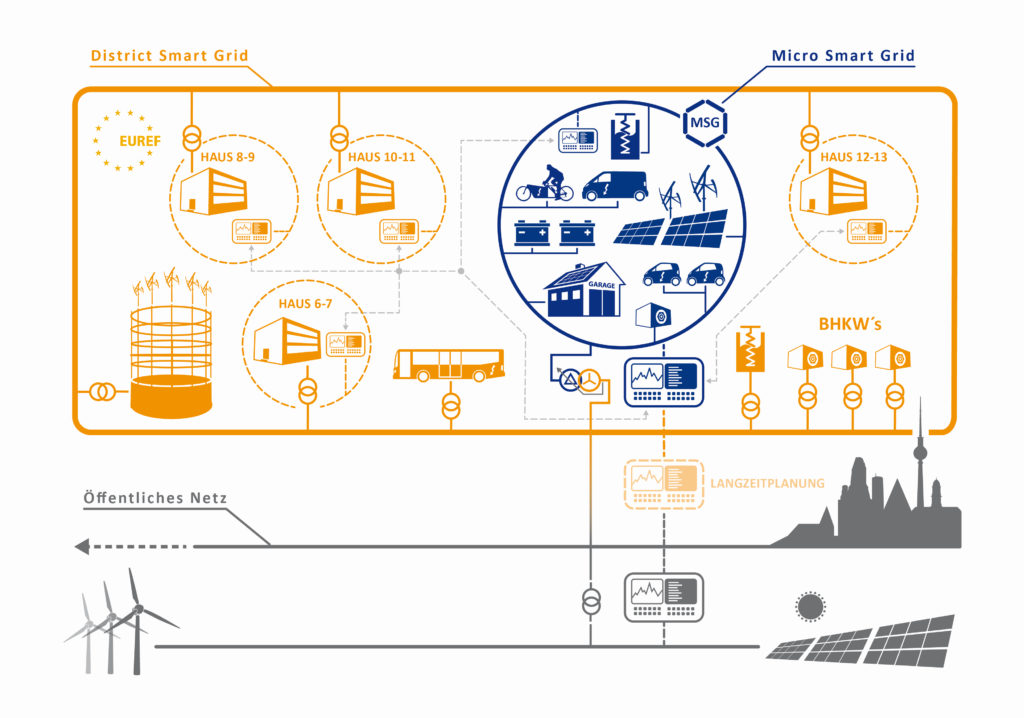Research Campus Mobility2Grid: "Smart Grid Infrastructures"

The Funding Initiative “Research Campus”
With the funding initiative “Research Campus – public-private partnership for innovation”, the Federal Ministry of Education and Research supports large-scale and long-term approaches to cooperation between science and industry. Thus, complex and multidimensional research fields with high research risk and special potential for leap innovations. The close proximity in a research campus helps to balance the different interests of each partner and to unite for a common research and transfer approach. So future applications are already thought in the design of research projects. This facilitates later the successful implementation of research results into new products, processes and services. In addition, the research campuses engage in higher education or the education of young scientists and thus satisfy the need for skilled personnel of our economy.
The Research Campus “Mobility2Grid”
The central idea of the research campus “Mobility2Grid” is the integration of commercial and residential electric vehicles in decentralized energy networks. The urban neighborhood development should contribute to the realization of the energy and transport revolution. The objective is to realize the supply of electricity, heat and transport more affordable, reliable and sustainable by means of new technological options and the involvement of the civil society. The EUREF Campus in Berlin serves as a test and reference quarter to describe the basic parameters of a decentralized utility industry for sustainable urban development. In six topic areas new fields of technology and innovative business models are opened as well as research on acceptance and promotion of young scientists are practiced. A cross-sectional field is dedicated to the operation and exploitation of the results in a jointly organized company.
The Topic Area “Smart Grid Infrastructures”
The unique mixture of infrastructure at the closed campus area with a Micro Smart Grid includes a physical integration of charging infrastructure for electric vehicles in a smart grid architecture, which offers extensive development and demonstration facility in a real-life laboratory. Simulation-based models of campus buildings form the basis for an optimization of the power-heat-cooling system and the integration of heat and cold storage as an additional storage element in the smart grid. Thereby, the real planning and infrastructural development process on the EUREF campus is brought into balance with the research in this topic area. This may in particular be pursued which stationary and (electro-) mobile storage technologies and capacities in a smart grid architecture can be integrated and optimized taking into account the interactions with renewable energies.
The DAI-Lab focusses on the following research topics:
- Provisioning of machine learning algorithms for prediction of the demand of buildings on electrical and thermal energy as well as the energy demand of electric vehicles
- Provisioning of algorithms for sustainable energy optimization in consideration of the mobile and stationary storages as well as CHP and P2H technologies
- Modelling and evaluating building’s inherent thermal storage capabilities for usage in smart grid control.

Overview
Project Acronym:
Project Title:
Duration:
Website:
Contact person:
Keywords:
Competence Centers:
Application Centers:
Sponsors:

